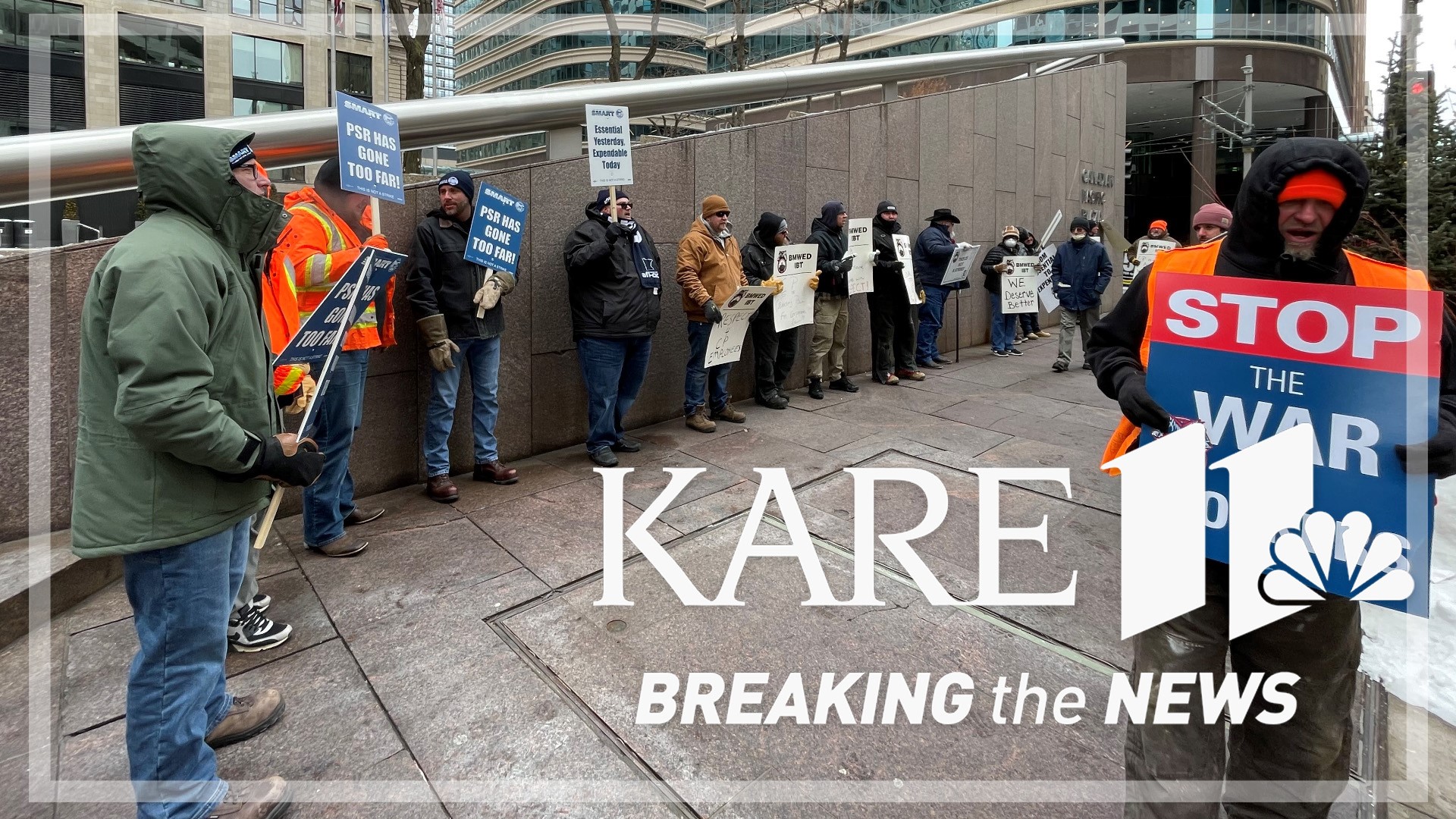MINNEAPOLIS — The drama surrounding the railroads still continues, and on Friday, it unfolded in front of Canadian Pacific headquarters in Minneapolis.
You might remember that Congress averted a strike last year, but some railway workers still don't have a contract. They say that their working conditions keep getting worse.
"Things are boiling and if we get the opportunity to strike, we're not taking it off the table," said Brotherhood of Maintenance of Way Employes Division (BMWED) Vice General Chairman, Burlington System Division George Loveland.
Loveland is part of the BMWED that represents 26,000 workers across the country who build and maintain tracks — half of whom don't have a contract after more than a year of negotiations with Canadian Pacific.
A longtime sticking point is paid sick leave.
"So whether you're sick, your child is sick, your wife doesn't have a sick time, we have nothing to help out," said Loveland. "And if we miss work, we get in trouble and disciplined."
Back in September, the Biden Administration brokered a deal between railroads and union leaders but four unions rejected it. Still, it stopped a strike that experts say would have sunk the economy, losing up to $2 billion every day.
"It helped in that there is a contract and so people are going to continue to work and from the Biden Administration's perspective, it prevented a disruption in the supply chain that would have had repercussions down the road," said Macalester College History Professor Peter Rachleff. "But for the workers, there's a deep sense of not being appreciated and not being recognized as human beings."
There are 21 railroads that operate in Minnesota, but only the four largest are unionized, including Canadian Pacific.
Loveland says Canadian Pacific stopped bargaining with local members on Dec.14, and its final offer falls more than 2% short of what other workers got nationally.
Railroads have long argued that workers agreed to give-up paid sick time for higher wages, but union members say railroads can afford it.
Loveland also points to other deteriorating working conditions like stagnant wages, staffing shortages and strict schedules.
"That's what we'd like to see, just some human basic dignity," said Loveland. "And if we go on strike, the traffic will shut down, there won't be any trains running on Canadian Pacific."
More than 7,000 different trains run across the country every day, but the issues at the heart of rallies, like the one held by BMWED, are really very similar, according to Rachleff.
"I think people who are working short staff feel pressure and the pressure does not lift," said Rachleff.
BMWED says Canadian Pacific is pursuing a merger with another rail line out of Kansas to create the first railroad to span Canada, the United States and Mexico.
When asked to respond to what BMWED has said, Canadian Pacific sent this statement, "CP has engaged in good faith bargaining with BMWED over the union’s proposals and will continue to do. We have requested a federal mediator to assist the parties to help resolve the matter."
Watch more Breaking The News:
Watch all of the latest stories from Breaking The News in our YouTube playlist:

